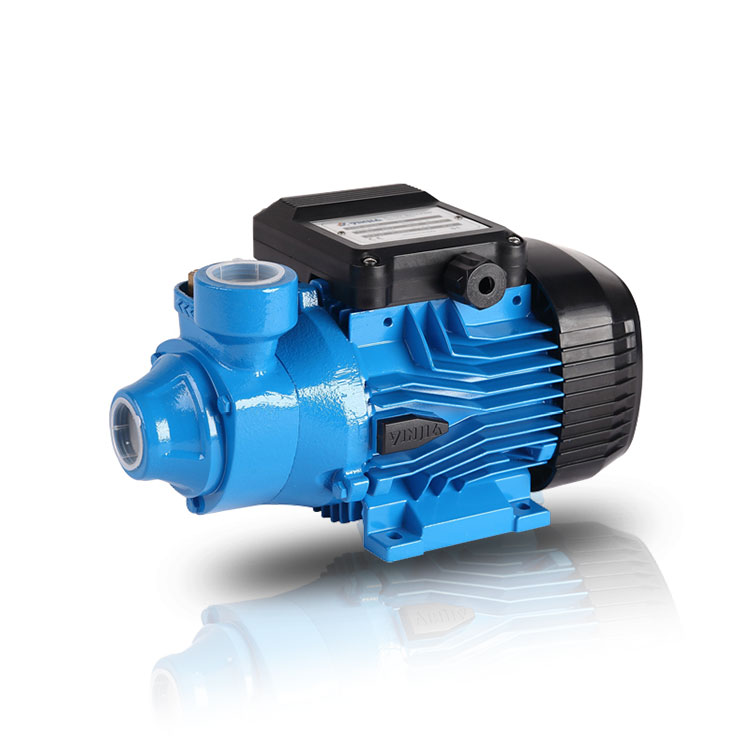Clear Flow: Understanding the Capability of Peripheral Pumps in Handling Debris and the Need for Filtration
2024-01-15
Introduction:
Peripheral pumps are essential components in household water systems, providing efficient water circulation for various applications. One crucial consideration in their operation is their ability to handle water with debris or particles. In this blog, we'll explore the capability of peripheral pumps in managing debris-laden water and whether additional filtration is necessary to maintain optimal performance.
1. Understanding Debris in Water: Sources and Impact:
Debris in water can originate from various sources, including sediments, leaves, sand, and other particles. When present in significant quantities, debris can pose challenges to water pumps, potentially causing clogs, damage, or reduced efficiency.
2. Built to Tackle Debris: Robust Impeller Design:
Peripheral pumps are often equipped with robust impellers designed to handle water with debris. The impeller is a critical component that rotates to create water flow, and its design allows it to move water efficiently even when it contains small particles.
3. Debris Handling Capacity: Matching Pump Specifications:
The capability of a peripheral pump to handle debris is often specified by the manufacturer. Pump models may have different debris handling capacities, and it's essential to choose a pump that aligns with the potential debris content in your water source.
4. Multistage Filtration Systems: An Extra Layer of Defense:
While peripheral pumps are designed to handle some degree of debris, incorporating additional filtration systems can provide an extra layer of defense. Multistage filtration systems can trap particles of varying sizes, preventing them from reaching and potentially damaging the pump.
5. Mesh Strainers: Protecting Pump Inlets:
Mesh strainers placed at the pump inlet serve as effective barriers against larger debris. These strainers capture leaves, twigs, and larger particles, preventing them from entering the pump and causing obstructions.
6. Centrifugal Force: Dispelling Particles Efficiently:
Peripheral pumps rely on centrifugal force to move water. This force can help displace lighter particles, allowing them to be carried away in the water flow. However, heavier or denser particles may require additional filtration for effective removal.
7. Sediment Filters: Addressing Fine Particles:
Fine particles like sand or sediment may not be effectively handled by the impeller alone. In such cases, sediment filters can be installed in the water system to capture these smaller particles before they reach the pump.
8. Regular Maintenance: Preserving Pump Efficiency:
Regardless of the filtration systems in place, regular maintenance is crucial. Cleaning and inspecting the pump, impeller, and any installed filters ensure that the system remains free from debris buildup, preserving pump efficiency over time.
9. Check Valve Protection: Preventing Backflow Issues:
Peripheral pumps often include check valves that prevent backflow when the pump is turned off. Installing mesh strainers or filters before the check valve can further protect the pump from debris and enhance its overall reliability.
10. Consideration of Water Source: Tailoring Filtration Solutions:
The specific water source—whether it's from a well, tank, or municipal supply—can impact the type and amount of debris present. Tailoring filtration solutions based on the characteristics of the water source ensures effective debris management.
Conclusion:
Peripheral pumps are designed to handle water with debris to a certain extent, thanks to their robust impeller designs. However, the need for additional filtration depends on factors such as the type and size of particles in the water source. Implementing mesh strainers, sediment filters, and regular maintenance practices can enhance the pump's ability to handle debris, ensuring a continuous and efficient water circulation system. By understanding the pump's capabilities and customizing filtration solutions accordingly, homeowners can maintain the longevity and reliability of their peripheral pumps in diverse water conditions.



